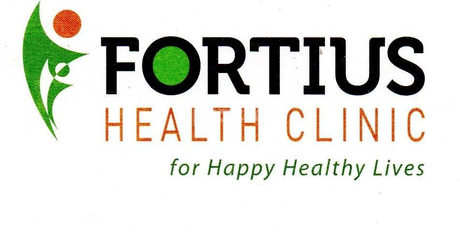Acute Kidney Disease (AKD)
What is Acute Kidney Disease (AKD)? Acute Kidney Disease, commonly referred to as Acute Kidney Injury (AKI), is a sudden episode of kidney failure or kidney damage that happens within a few hours or days. It causes a build-up of waste products in the blood and makes it hard for the kidneys to maintain the right balance of fluids in the body. AKD can affect other organs such as the brain, heart, and lungs. It is a reversible condition if detected early and managed appropriately, unlike chronic kidney disease (CKD), which develops slowly and is often irreversible. Causes of Acute Kidney Disease AKD generally occurs due to one or more of the following factors: 1. Impaired Blood Flow to the Kidneys (Prerenal AKI) Severe dehydration Heart failure Low blood pressure (shock) Severe infection (sepsis) Liver failure 2. Direct Damage to the Kidneys (Intrinsic AKI) Acute glomerulonephritis Nephrotoxic medications (NSAIDs, certain antibiotics) Autoimmune diseases (Lupus, Vasculitis) Rhabdomyolysis (muscle breakdown) Toxins and contrast dyes 3. Urine Blockage (Postrenal AKI) Kidney stones Enlarged prostate (BPH) Bladder tumors Urethral stricture or injury Common Symptoms of Acute Kidney Disease AKD symptoms can appear suddenly, and may include: Decreased urine output Swelling in legs, ankles, or around the eyes Fatigue or weakness Shortness of breath Nausea and vomiting Confusion or mental dullness Chest pain or pressure (in severe cases) Irregular heartbeat Who is at High Risk? Certain individuals are more prone to developing AKD, including: Older adults (above 60 years) People with diabetes or hypertension Patients undergoing major surgery or hospitalization Individuals with chronic heart, liver, or kidney disease People taking nephrotoxic drugs Those with urinary tract obstructions Potential Complications If not treated in time, AKD can lead to: Fluid overload and pulmonary edema Hyperkalemia (high potassium) Metabolic acidosis Uremia (toxic waste buildup) Acute respiratory distress syndrome (ARDS) Chronic kidney disease (progression) Death in severe cases Holistic Approaches to Treat Acute Kidney Disease Ayurvedic Treatment for Acute Kidney Disease Ayurveda approaches AKD by balancing the Tridoshas (Vata, Pitta, Kapha) and eliminating toxins (Aama) through natural means. Key Concepts: Strengthening kidney function (Vrikk vikar chikitsa) Detoxification through Panchakarma therapies Correcting fluid-electrolyte balance Common Ayurvedic Therapies & Herbs: Punarnava (Boerhavia diffusa): Diuretic and rejuvenating kidney herb Varuna (Crataeva nurvala): Useful for urinary obstruction and stones Gokshura (Tribulus terrestris): Enhances kidney filtration Chandraprabha Vati: Classical ayurvedic tablet for urinary problems Shilajit & Ashwagandha: To strengthen immunity and overall vitality Panchakarma Treatments: Virechana (Purgation therapy) Basti (Medicated enemas) Raktamokshana (Blood purification in selected cases) Always under supervision of an experienced Ayurvedic physician. Unani Treatment for Acute Kidney Disease Unani medicine focuses on restoring the balance of humors (Akhlat) – Dam (blood), Balgham (phlegm), Safra (yellow bile), and Sauda (black bile). Unani Concepts: Tanqiya-e-Badan (detoxification) Tadeel-e-Mizaj (balancing body temperament) Istefragh (elimination of morbid matter) Common Unani Remedies: Habb-e-Mudir: Stimulates kidney function Qurs Kushta Hajrul Yahood: Effective for kidney stones Sharbat Bazoori: Natural diuretic and anti-inflammatory syrup Jawarishe Zarooni: Supports urinary health and digestion Dawa-ul-Misk Motadil: Improves systemic strength Unani also recommends Hijama (wet cupping) and Ilaj bil ghiza (dietary treatment) for toxin elimination and immune support. Natural & Lifestyle-Based Treatment Approaches 1. Hydration Management Adequate, but not excessive, fluid intake Avoid soft drinks, energy drinks, or high-sugar juices 2. Renal Diet Plan Low sodium and potassium diet Restrict protein as per physician guidance Avoid processed, canned, and fried foods 3. Home Remedies & Nutritional Support Coriander seed water Barley water Amla (Indian gooseberry) juice Coconut water (if potassium is normal) Papaya and pomegranate in moderate quantities 4. Yoga & Breathing Exercises Pranayama, Anulom Vilom for stress and blood pressure Yoga postures: Vajrasana, Bhujangasana, and gentle stretching (consult doctor first) 5. Avoid All Harmful Substances Stop smoking and alcohol Avoid NSAIDs, over-the-counter painkillers, and antibiotics without prescription Prognosis & Recovery Early detection and treatment can result in complete recovery. Patients need regular renal function monitoring and follow-up. Lifestyle modifications and herbal therapies greatly enhance long-term outcomes and reduce recurrence. When to Seek Immediate Medical Help No urination for more than 12 hours Sudden swelling or breathlessness Confusion or seizures High fever with vomiting 🌿 We Offer Holistic AKD Treatments at Fortius Kidney Care Combining the power of Ayurveda, Unani, and natural healing, we provide non-invasive, herbal-based, personalized treatments for Acute Kidney Disease.
Invalid Date1 دقيقة قراءة


Kidney care insights
